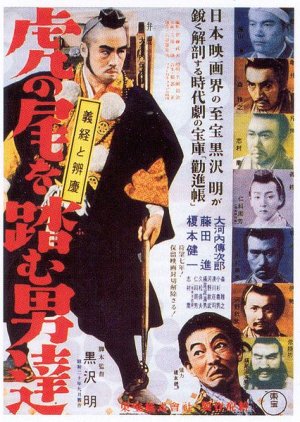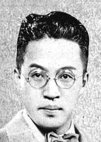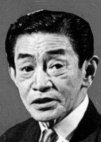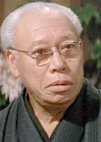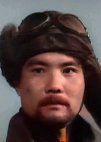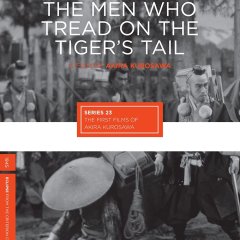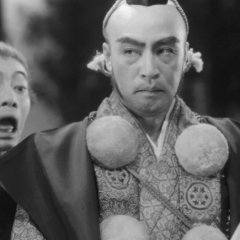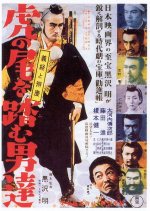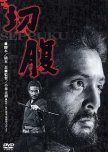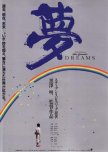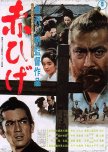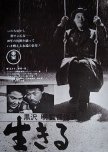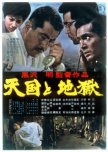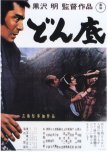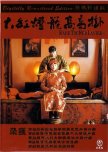- Français
- English
- magyar / magyar nyelv
- dansk
- Titre original: 虎の尾を踏む男達
- Aussi connu sous le nom de: Tora no O o Fumu Otokotachi , They Who Step on the Tiger's Tail , They Who Step on the Tail of the Tiger
- Scénariste et Réalisateur: Kurosawa Akira
- Genres: Aventure, Thriller, Drame
Distribution et équipes
- Ohkochi DenjiroBenkeiRôle principal
- Fujita SusumuTogashiRôle Secondaire
- Enomoto Kenichi[Porter]Rôle Secondaire
- Mori MasayukiKameiRôle Secondaire
- Shimura TakashiKataokaRôle Secondaire
- Kono AkitakeIseRôle Secondaire
Critiques

Cette critique peut contenir des spoilers
"The road ahead is more important"
Kurosawa filmed The Men Who Tread on the Tiger's Tail in 1945 but due to Japanese and American censors the film wasn't released until 1952. Based on a Kabuki play which was based on a Noh play which was based on a famous legendary event in 1185, the film retained the look and feel of a play. The event involved a famous samurai and his six loyal retainers attempting to seek refuge far away from his murderously paranoid brother.The story retells the tale of Yoshitsune who helped his brother defeat his enemies and become Shogun. Despite all his help, Yoritomo, like any loving brother would, decided Yoshitsune was a threat and ordered his "capture". Yoshitsune escapes with six loyal retainers, including the fierce monk samurai Benkei. As they travel through the woods dressed as monks, the audience is treated to a chatty, unhinged porter who informs them that the check point guards are looking for samurai disguised as monks. Some unlucky monks were cut down recently at the checkpoint---so much for capture being the goal. Yoshitsune disguises himself as a porter, but having never carried his own equipment, is shaky with handling the load. When they arrive at the barrier, Benkei works for their release by appealing to the magistrate, Togashi. Eventually, after several close calls, Togashi allows them to pass. As long as you don't read the next chapter in history, it's a happy ending!
One of the reasons that the Japanese failed to list Kurosawa's film officially, which caused the occupying forces to ban it, was that certain censors felt like Kurosawa had treated the revered samurai too lightheartedly, especially with the addition of the comical porter. The porter who mugged for the camera when he wasn't bouncing around was annoying. He was a prescient combination of the jester in Ran and Mifune Toshiro's deranged samurai in Seven Samurai/Rashomon. Whether he was comic relief or an avatar for the audience, I could have used less of him onscreen.
The main character in this film was not Yoshitsune, but rather Benkei, at least when the porter wasn't laughing maniacally and stealing focus. The monk did most of the planning and when confronted with the opposing forces at the border pleaded their case to Togashi. This included a 3 ½-minute reading of a Buddhist "proclamation" which felt twice that long. When Togashi sent the "monks" food and drink afterwards as an apology, there was an 8-minute drinking, dancing, singing segment. There were several singing segments, the film was much like a musical play.
Aside from Benkei, Togashi was the other compelling character. The way he was played it appeared he knew the monks were Yoshitsune and his men and purposefully let them go much to the consternation of his underling. When he sent the drinks, which Benkei took very seriously and ceremoniously, it caused me to wonder if Togashi would have to forfeit his life when it was discovered Yoshitsune had eluded him and Benkei was aware of that sacrifice as well.
As I mentioned, the film felt theatrical and simple. Maybe Kurosawa was filming on a wartime budget which might have accounted for the short running time. There were very few settings, only indoor sets with painted backdrops and fake trees. With the exception of opening fog, his signature wind was missing. Unlike Kurosawa's wider shots from later films with action going on in three layers, most shots were narrowly focused in small frames. This film felt lacking in energy and urgency, especially for men on the run with the enemy lurking about. Instead of his fluid shots with action carrying the story forward, even if it was just the weather giving movement, much of this film showed men squatting or manspreading or simply standing around. For a Kurosawa film it felt strangely static.
As a brief lesson in Japanese history, it was interesting to learn a little bit about this famous samurai. What came after this story was even more fascinating to me. A few years later, to give his lord time to commit seppuku when they were betrayed and surrounded, Benkei guarded the way in, taking so many arrows he died standing up. Such was the nature of his reputation that the opposing side waited before checking to see if he was alive. While most foreign audiences wouldn't have known this story didn't ultimately have a happy ending, reading more about it did give what appeared on stage more depth to me.
I found the porter grating instead of humorous, although in the end he did show his loyalty and use. Benkei proved to be fast on his feet when it came to crossing words with the enemy. And the enemy turned out to understand that murdering one's own brother might not be the best way to instill trust in people. The Men Who Tread on the Tiger's Tail was fairly entertaining and a nostalgic look back at Kurosawa's fourth film. How well you enjoy it may depend on how well you enjoy the porter's antics and dialogue interspersed with song.
7/10/23
Cet avis était-il utile?
Recommandations
There have been no recommendations submitted. Be the first and add one.

